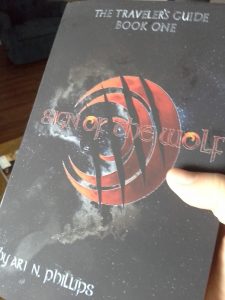Let’s talk world building.
Have an awesome idea for a story? Great! Now here comes one of the tricky parts creating a world that is believable while at the same time being fantastic. So here goes.
Personally I get caught up in the characters in my story rather than the world itself and like anyone who picks up a pen or sits at a keyboard I am still learning my craft. I have made mistakes in the past and will make hopefully different mistakes in the future, but for right now here are some ideas for building your own world.
- Decide what kind of world you want for your story.
- This seems simple but it is a very important first step even if you are working within the same genre as a futuristic world ruled by an offshoot of blood sucking aliens is going to be a far cry from the futuristic world where dinosaurs are kept as household pets . . . Most of the time.
- Now that you have a general frame work its time to think about the structures that framework is going to support such as . . .
- Government. Are your blood sucking aliens democratic? Is there a Great Sucker who rules over all the Lesser Suckers? Is there an oligarchy? As we all know politics play a big part in our lives, even if we never pay attention to them especially on a small scale. (For example in a few different cities I lived in only three people couldrent an apartment unless theywere related or the apartment was specifically zoned differently.)
- Economics. This concept goes beyond just establishing some sort of money system.
 Economics also looks at what kinds of industry exists in your world? Are there farms? Factories? Mines? Lumber mills? Again local industry is going to be more important than global industry and is going to color the perceptions, language and attitudes of your characters.
Economics also looks at what kinds of industry exists in your world? Are there farms? Factories? Mines? Lumber mills? Again local industry is going to be more important than global industry and is going to color the perceptions, language and attitudes of your characters.
- Time and Measurement. These are not things we generally think too much about but it makes a difference if you’re trying to pull the alternator out of a foreign made car with metric bolts and all you have is a standard ratchet set or you show up on January 1st only to discover that the Chinese New Year celebration is not going to be held until next month.
Not every culture has the same perceptions of time as we do nor do they use the same standards of measurement. How do you’re people tell time? Is it standard across the planet or is your world richly populated with several different cultures each with their own methods of measurement?
I do want to give a small caution here on how to approach time and measurement as having too many foreign concepts can become confusing and pull readers out of the story. It can also be a point where the world building can get in the way of story telling. An awesome world is great but it is the actors who take center stage not the scenery.
- Values and Religion. What do people believe in? What is important to them? Does the average Joe pray to Hemoglobin, the God of blood asking that his might be tainted so the blood sucking aliens won’t select him for sacrifice? Does your society esteem homeliness or — as last week’s book recommendation showed – being single?
- What do hemoglobin hungryaliens speak? Does everyone have to learn the Blood Suckese? Just something to think about.
This is by no means an all inclusive list of world building tools, but I hope it’s enough to get you started.
Now again I’d like to give a warning. World building is a lot of fun, but it can also be a trap. Many writers refer to a condition known as world builder’s disease. It is possible for a writer to get so caught up in creating this amazing world of vampire aliens that they never actually get around to actually writing the story.
Don’t feel like you have to know every piece of currency and be able to speak Blood Suckese fluently before starting to write. Most of the time a general framework can suffice to begin with and you can flesh out more about certain aspects of the world as it is needed. Spend your world building effort on aspects of your world that are going to directly impact the story that is being told. If Keich grew up in a mining town but the town twenty miles away has a lumber mill mining is going to be more important in your story than the lumber industry – unless of course Keich leaves his mining behind him to work in the lumber mill. Either way I think you get the idea.
Happy writing.

